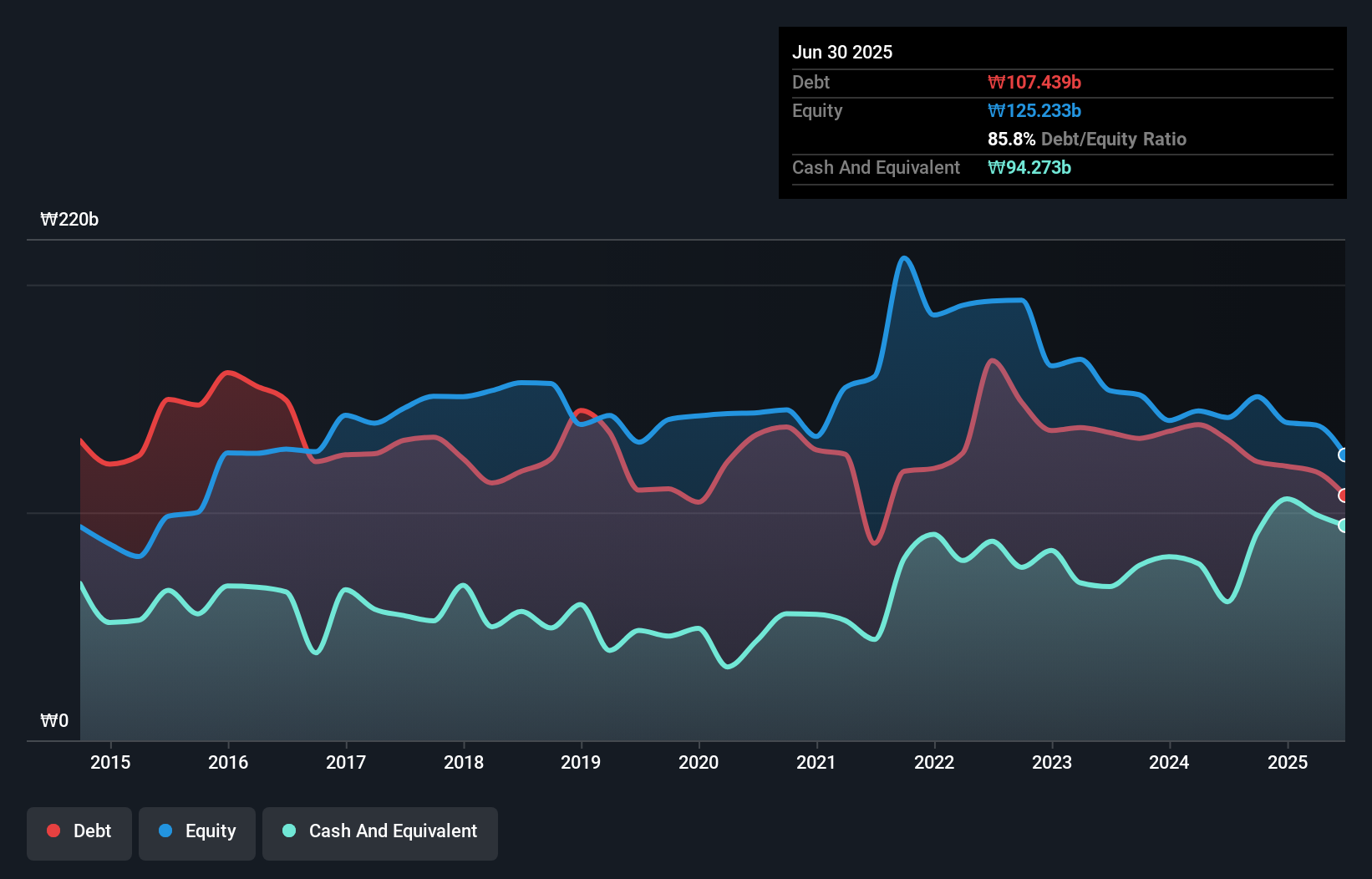Howard Marks put it nicely when he said that, rather than worrying about share price volatility, ‘The possibility of permanent loss is the risk I worry about… and every practical investor I know worries about.’ So it seems the smart money knows that debt – which is usually involved in bankruptcies – is a very important factor, when you assess how risky a company is. Importantly, CoAsia Corporation (KOSDAQ:045970) does carry debt. But is this debt a concern to shareholders?
When Is Debt Dangerous?
Debt assists a business until the business has trouble paying it off, either with new capital or with free cash flow. In the worst case scenario, a company can go bankrupt if it cannot pay its creditors. However, a more common (but still painful) scenario is that it has to raise new equity capital at a low price, thus permanently diluting shareholders. Of course, plenty of companies use debt to fund growth, without any negative consequences. The first step when considering a company’s debt levels is to consider its cash and debt together.
What Is CoAsia’s Debt?
As you can see below, CoAsia had ₩107.4b of debt at June 2025, down from ₩131.9b a year prior. On the flip side, it has ₩94.3b in cash leading to net debt of about ₩13.2b.
 KOSDAQ:A045970 Debt to Equity History September 1st 2025 How Healthy Is CoAsia’s Balance Sheet?
KOSDAQ:A045970 Debt to Equity History September 1st 2025 How Healthy Is CoAsia’s Balance Sheet?
We can see from the most recent balance sheet that CoAsia had liabilities of ₩132.6b falling due within a year, and liabilities of ₩99.9b due beyond that. Offsetting this, it had ₩94.3b in cash and ₩32.0b in receivables that were due within 12 months. So its liabilities total ₩106.2b more than the combination of its cash and short-term receivables.
This is a mountain of leverage relative to its market capitalization of ₩147.8b. This suggests shareholders would be heavily diluted if the company needed to shore up its balance sheet in a hurry. There’s no doubt that we learn most about debt from the balance sheet. But it is CoAsia’s earnings that will influence how the balance sheet holds up in the future. So if you’re keen to discover more about its earnings, it might be worth checking out this graph of its long term earnings trend.
View our latest analysis for CoAsia
Over 12 months, CoAsia saw its revenue hold pretty steady, and it did not report positive earnings before interest and tax. While that’s not too bad, we’d prefer see growth.
Caveat Emptor
Importantly, CoAsia had an earnings before interest and tax (EBIT) loss over the last year. Its EBIT loss was a whopping ₩24b. When we look at that and recall the liabilities on its balance sheet, relative to cash, it seems unwise to us for the company to have any debt. Quite frankly we think the balance sheet is far from match-fit, although it could be improved with time. Another cause for caution is that is bled ₩16b in negative free cash flow over the last twelve months. So in short it’s a really risky stock. When analysing debt levels, the balance sheet is the obvious place to start. But ultimately, every company can contain risks that exist outside of the balance sheet. These risks can be hard to spot. Every company has them, and we’ve spotted 2 warning signs for CoAsia you should know about.
When all is said and done, sometimes its easier to focus on companies that don’t even need debt. Readers can access a list of growth stocks with zero net debt 100% free, right now.
Our new AI Stock Screener scans the market every day to uncover opportunities.
• Dividend Powerhouses (3%+ Yield)
• Undervalued Small Caps with Insider Buying
• High growth Tech and AI Companies
Or build your own from over 50 metrics.
Have feedback on this article? Concerned about the content? Get in touch with us directly. Alternatively, email editorial-team (at) simplywallst.com.
This article by Simply Wall St is general in nature. We provide commentary based on historical data and analyst forecasts only using an unbiased methodology and our articles are not intended to be financial advice. It does not constitute a recommendation to buy or sell any stock, and does not take account of your objectives, or your financial situation. We aim to bring you long-term focused analysis driven by fundamental data. Note that our analysis may not factor in the latest price-sensitive company announcements or qualitative material. Simply Wall St has no position in any stocks mentioned.
